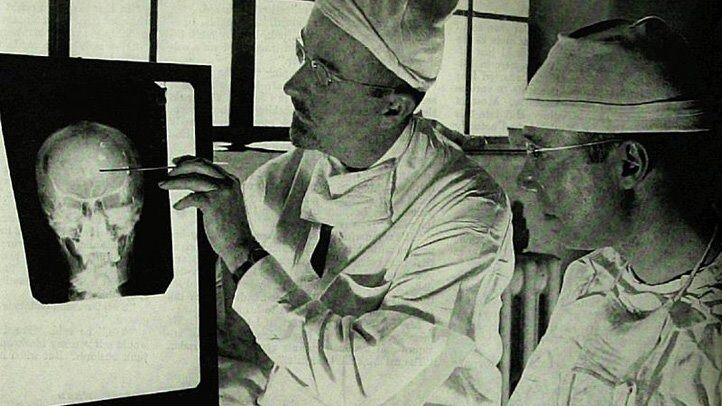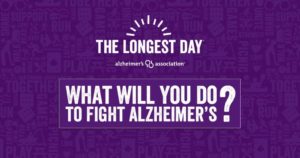Mental Health in History
Weather, Climate Change, and Mental Health
Trust the Experts
Alzheimer’s and Brain Awareness Month
Mental Health in History

It can be easy to get pessimistic. We’re no strangers to it ourselves. With talk of mental health epidemics and a high suicide rate among young people, it can sometimes be hard to find the silver lining in all of it. Are we even making progress? Is this a fight we can win, and have we won anything since we started? How much further do we have to go?
Here’s the good news: We’ve come far. Very far.
We’re not saying anything radical or controversial when we say how much the field has progressed. In the 1800s, it was popular to describe any kind of mental illness as “madness”. Common terms such as hysteria and breakdown were used interchangeably, and thrown around for just about any possible condition, along with lunacy and insanity. Many famous novels, especially the gothic ones of the Romantic period, indulged in madness and mental illness as mere plot devices, or tawdry subjects that scandalized the reading public. When someone was sick, bloodletting was still a popular medical practice to attempt to heal them.
Let’s go back even further to the Middle Ages. The understanding of the body was very different. No one knew of genes, or germs, and especially nothing of serotonin or brain chemistry. Medical science was rudimentary at best, and you were more likely to be treated by a priest than by any doctor. Those who suffered mental illness were often thought to be possessed by a demon, or under the influence of unknown supernatural forces. Science held no ability to save you in these cases; stronger forces were needed, not for the brain, but for the soul. It was moral treatment that would cure you.
Going back further than that, the science only becomes murkier. The ancient Greeks enjoyed symmetry, not only in nature, but in the human body. According to Hippocrates, the namesake of the Hippocratic Oath, there were four basic elements making up existence, earth, air, fire, and water, and four basic humors composing humans: phlegm, black bile, yellow bile, and blood. Each humor was centered in particular organs, and also related to personality types: Melancholic, choleric, phlegmatic, and sanguine. When something was wrong with a person, be it physical or mental illness, the treatment was to remove an amount of the excessive humor responsible for it.
Throughout history, there’s always been a struggle to understand the human body in relation to its environment—and our own minds. Are we born with our illnesses, or do we develop them from how we are raised? The late 19th century saw the introduction of Weismann’s germ-plasm theory, a concept for the basis of heredity involving germ cells, or cells distinct and separate from the other cells of the body, a theory which lasted well into the 20th century. After Mendel and Darwin, everyone wanted to know how we inherited traits physically, and how we by extension passed down illness and psychosis.
Upon discovery of genes, and later DNA and the double helix, we started to piece together exactly how we inherit these traits. We started to see science as holding the answer to treatment. We replaced the four humors and demons with genetics, psychoanalysis, and theories of environments and their effects. Germ plasm became genome. We saw the whole person and their interaction with society in a more realistic way. Our treatments have only become more humane, our goals more attainable as a result.
All these things in total are why we know it’s getting better. Progress has been made, will continue to be made. We use the latest and the best technology at Alivation today, and we will continue to do so. Our integrated approach is part of the future, and we’re excited to see it. It’ll only keep getting better for everyone.
Weather, Climate Change, and Mental Health

Photo: Laura Hutton/RollingNews.ie
Winter is (mercifully) over, but that doesn’t mean our mental health isn’t still affected by the weather outside. The most common that we all know about is how the rain, which doesn’t want to end in this state, can cause or exacerbate depression: it’s wet outside, cloudy and dark, so we stay in, isolated, and someone with a mental health challenge can start to feel dejected or claustrophobic from this. This can lead to frustration, anxiety, and a cycle of depression that continues.
But what about the less known ones?
Extreme heat or long periods of hot temperatures can cause discomfort, fatigue, lethargy, inability to sleep, and sometimes lack of appetite or dehydration. All these factors are potential irritants, which can lead to anxious or sometimes aggressive behaviors toward others. For some people, certain medications they are taking can also cause them to have to limit their outdoor time or sun exposure, which can also lead to the same feelings of dejection or social isolation as a rainy day.
And then there is the larger issue of changing weather patterns and our evolving moods to correspond to it. Research indicates storms will increase in severity and sometimes duration over the coming decades due to global climate change, and numerous mental health conditions can be worsened by these effects. The APA has established guidelines for dealing with mental health conditions stemming from climate change. The Lancet Commission on Health and Climate Change identifies “anxiety-related responses, and later chronic and severe mental health disorders” as arising from associated natural disasters. Many of us think of climate change as a looming threat, when in fact it is already upon us.
We’ve seen the latter already. This season has already set a record for tornadoes. Nebraska has been absolutely devastated by severe storms and torrential flooding this year. One only has to read “River of No Return” from May 28’s The New Republic to see a portrait of a state, and a people, struggling to cope mentally and physically with the destructive changes happening all around us. These weather events, especially the more tragically catastrophic of them, can also lead to PTSD-type conditions for the survivors.
To lose everything in a devastating storm also causes a terrible mental burden. The stress of rebuilding and trying to move on with life can be a great challenge, and the financial hardships many people face following these events only makes it all the worse. Sometimes in these situations, there seem to be so few ways to successfully engage with and overcome the obstacles. Many people likely never do, at least fully.
What is truly needed is a better, more comprehensive understanding of how exactly climate change and weather patterns will affect humans in the long run. We’re only now beginning to experience its effects, and to see, for the first time, the problems that will arise in the mental wellbeing of those in the path of the destruction. The more data we collect, the more we’ll be able to treat what emerges.
Weather is fickle, changing rapidly from one thing to the next, especially in Nebraska. But that doesn’t mean it’s hopeless. Communication and education are the key, and spreading the word about how we can help others. Charities and humanitarian organizations exist to help those out in physical peril, or to rebuild their lives when weather shatters it. For those depressed on a rainy day, reach out to friends and family. Let loved ones help you. Learn about symptoms and find out if more treatment is needed. There is always hope, and often the darkness will pass like the clouds on a rainy day, yielding nothing but sunlight.
Trust the Experts

In today’s world, with ubiquitous internet availability, it’s become easier than ever to research symptoms. This, believe it or not, is a good thing! We love people sharing and discovering new facts, and especially people taking an active interest in their health and wellbeing. We need people to be informed about the causes and conditions of what they’re searching for, and how they can better themselves.
But when does it become a problem?
The answer is simple: When it impedes proper treatment. The solution is a little tougher.
If you’re experiencing unusual symptoms or have a condition you’re worried about, for almost all of us, the first thing we do is google it. It’s simple, free, and very useful. Often we learn what we have is incredibly common or maybe not even out of the ordinary at all. Sometimes a mole is just a mole, and a headache is just because the music was too loud, and nothing more.
But if symptoms persist, or are more serious, we often go down a rabbit hole of anxiety and projection. We keep googling until we’ve discovered that we don’t just have a simple ache or pain, but in fact a debilitating or potentially deadly illness. We started out searching for why we sometimes get a pain in our hand, and we ended by finding out we have actually have a serious, rare illness. We think about drawing up the last will and testament.
In times like this, we need the experts. Many people make health decisions based on what they find online. This isn’t necessarily a bad thing, provided it’s something basic and not life-threatening, like nutrition info or workout tips or ways to reduce lower back pain. But when it comes to types of treatment for cancers, or mental disorders ranging from depression to schizophrenia, there really is no substitute for seeing a trained medical professional.
The real virtue of the experts is that they’re, well, experts. Many of our team at Alivation have dozens of years of experience, and we have a century of combined knowledge among everyone here. Our doctors and providers have gone through years of rigorous training at some great schools to be qualified to help patients. We don’t just google WebMD and type in your symptoms and settle on the one that will net us the most money. Medicine and mental health do not work that way.
We’re interested in helping you because it’s the right thing to do, and it’s what we’re trained to do. The people who work at Alivation have a great drive and passion for mental health and treatment of their patients. It’s a calling for many of them, and they take it as seriously as it requires. They love helping, and they take pride when they cure someone. We get numerous patients through the doors all the time asking about symptoms they’ve already googled and wanting to know more. That’s a good thing! Being proactive about your health is how we find and treat things before they become a problem.
Patients sometimes have trouble with the term expert. It maybe implies that they’re infallible, or hold unattainable wisdom others do not. It’s a no to both. If we aren’t sure, we get a second opinion from someone else qualified in our organization. We consult with outside experts when needed and defer to the right judgment when it is made, no matter where it is made. It’s just a good policy for us to have, and one that helps patients immeasurably.
So if you’re concerned about a condition you have, or you’ve spent the night madly googling every possible illness you may have, fear less and call more. Stop by Alivation and see our experts. Let us put you at ease and, if needed, start you on your road to treatment. You can trust the experts here.
Alzheimer’s and Brain Awareness Month

June is Alzheimer’s and Brain Awareness Month.
Alzheimer’s is ranked as the sixth leading cause of death in the United States, although new estimates suggest the disease may rank just behind heart disease and cancer as a cause of death for older people. Alzheimer’s is not a normal part of the aging process. It’s the most common cause of dementia among older adults, and approximately 200,00 Americans under the age of 65 have early-onset forms of the disease. Alzheimer’s worsens over time, progressively worsening over the years. Eventually, individuals forget family members, lose the ability to carry on conversations, and respond to their environment at all.
This is what inspires the most dread.
Few things make up the individual like our memories. Our social connections, our familial relationships, and our memories of places and interactions form the core of our experiences. As we age, we naturally begin to forget some of those things. With Alzheimer’s, those experiences aren’t simply discarded or forgotten—they’re stolen. A grandparent, a parent, a friend losing their memory of you, who they are, and where they are is particularly tragic to us in this light. We lose our core selves.
Alzheimer’s is named after Dr. Alois Alzheimer, who, in 1906, noticed changes in the brain tissue of a woman who had died of an unknown illness—an illness that included memory loss, language problems, and unusual behavior. Upon studying her brain postmortem, Dr. Alzheimer found abnormal clumps (amyloid plaques), and tangled bundles of fibers, called tau tangles. These are still considered among the main features of Alzheimer’s, along with the loss of connections between neurons in the brain.
It’s been going on for decades, but the fight for Alzheimer’s awareness needs your help now more than ever. According to the Alzheimer’s Association, 50 million people worldwide are living with Alzheimer’s and other dementias. To raise awareness, the campaign encourages people to wear purple in support of this important month. It also encourages social media users to be active in spreading the word, using hashtags like #GoPurple and #EndAlz, or #ABAM for the entire month.
Alzheimer’s Disease is diagnosed in some of the following ways:
- Asking the person and a family member or friend questions about overall health, past medical problems, ability to carry out daily activities, and changes in behavior and personality.
- Conducting tests for memory, problem solving, attention, counting, and language.
- Carrying out standard medical tests, such as blood and urine tests, to identify other possible causes.
- Performing brain scans, such as computed tomography (CT), magnetic resonance imaging (MRI), or positron emission tomography (PET), to rule out other possible causes for symptoms.
Though Alzheimer’s is a deadly, so far incurable illness, there is hope. Billions of dollars are spent every year funding research into the causes and potential cure, and the world has experienced a resurgence of interest in understanding and, hopefully one day eradicating, the disease. With increased education and awareness, the possibility increases that this may just come true, and we’ll live in a world without Alzheimer’s. This year, with your help, let’s work toward that common goal.
